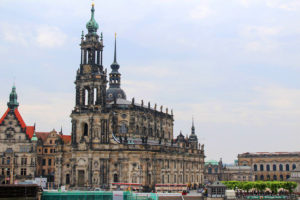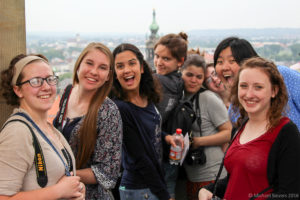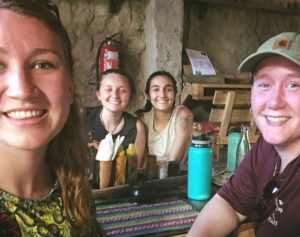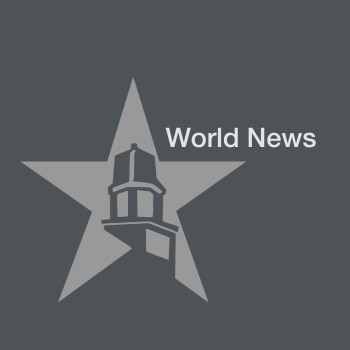The Centers for Disease Control and Prevention (CDC) informed its employees last month of its plans to discontinue overseas epidemic prevention work in 39 of 49 countries after severe budget cuts, according to CNN. Reports by The Atlantic also indicated that the country’s flagship public-health agency is facing internal scandal after the resignation of CDC director Brenda Fitzgerald in late January. According to a spokesperson for the Department of Health and Human Services, Fitzgerald’s departure came as a result of her “complex financial interests,” involving investment in tobacco stock.
 The CDC’s Center for Global Health seeks to prevent the spread of disease abroad through monitoring between 30 and 40 outbreaks in other countries daily and training more than 10,000 people as disease detectives, according to the organization’s website. These efforts to stop outbreaks at their source have been funded mostly through a five-year supplemental package, which was awarded to the CDC in 2014 to respond to the Ebola epidemic in West Africa.
The CDC’s Center for Global Health seeks to prevent the spread of disease abroad through monitoring between 30 and 40 outbreaks in other countries daily and training more than 10,000 people as disease detectives, according to the organization’s website. These efforts to stop outbreaks at their source have been funded mostly through a five-year supplemental package, which was awarded to the CDC in 2014 to respond to the Ebola epidemic in West Africa.
According to The Atlantic, Congress appropriated $5.4 billion at that time, most of which was directly dedicated towards quashing the epidemic. Around $1 billion was allocated to help developing countries respond to infectious diseases. This funding is now drying up, and the CDC, with no promise of future funding, has been forced to significantly downsize its international work. The director of a division of the Center for Global Health, Dr. Nancy Knight, said, “We estimate approximately an 80% reduction in the staff that are based overseas.”
Countries losing funding include the Democratic Republic of Congo, which recently experienced its eighth Ebola outbreak, and China, which recently underwent its worst outbreak of H7N9 bird flu. “This is also going to result in a significant reduction of the staff we have at headquarters,” Knight added. Dr. Rebecca Martin, the Center for Global Health’s director, said overseas work will remain in 10 priority countries: India, Thailand, Vietnam, Jordan, Kenya, Uganda, Liberia, Nigeria, Senegal and Guatemala.
The CDC’s looming funding cliff has been met with anxiety and criticism from experts. The CDC’s former director, Dr. Tom Friedan, said the loss of prevention activities overseas will “significantly increase the chance an epidemic will spread without our knowledge and endanger lives.” Additionally, Dr. Friedan noted that while some have downplayed the importance of disease prevention, it is these preventative efforts that will decrease the cost—both economical and human—of infectious disease. “We can either help other countries stop disease outbreaks abroad or fight them here at home,” said Dr. Tom Frieden.
Mary Chu, who was part of the White House Office of Science and Technology Policy during the recent Ebola outbreak, agreed with Dr. Friedan that prevention is crucial. “To respond to an outbreak, you need to have a presence on the ground to execute emergency operations, and that has to be based on existing trust,” she said. Unfortunately, scaling back the current CDC presence on the ground will likely be necessitated by financial realities. “People have to prepare and live their lives,” says Linda Venczel, from PATH, a nonprofit working in global health. “People are packing their bags and looking for other jobs. Things will unravel pretty quickly,” she said.
While beset by budget cuts and the worst flu season in a decade, the CDC is now also facing an unexpected shift in leadership. Dr. Brenda Fitzgerald, the organization’s director, has resigned because of her troubling financial investments in tobacco and health care companies. Her resignation came less than a day after reports revealed that the month after she became director of the CDC, she had purchased stock in Japan Tobacco Inc. Dr. Fitzgerald said she had been unaware of the tobacco-stock purchase, according to the Wall Street Journal. In an email, she said that the purchase was made by an outside entity contracted by the couple’s investment manager and that she didn’t have control over which stocks were bought and sold.
Even before this information became public, lawmakers in Washington had expressed frustration with Dr. Fitzgerald’s investments, which required her recusal on several major health crises, including cancer and the opioid epidemic. Senator Patty Murray, the senate Health Committee’s top Democrat, said Dr. Fitzgerald’s resignation represents “yet another example of this Administration’s dysfunction and questionable ethics.” According to The New York Times, Dr. Anne Schuchat, a veteran official at the CDC, has been named acting director for the present.
Sarah is a senior double majoring in English and biology.






 The New York Times
The New York Times 